Review for Five Minarets in New York
Introduction
I've never been one for excessive reality in what I choose for my entertainment. I want my movies and television to be an escape from the real world, not a reflection of it. Not that I don't enjoy shows that set out to reflect an aspect of society, or make a statement, it's just that I very rarely seek them out. That's doubly true for films and TV shows that have sprung up following the World Trade Centre attacks and the so-called War on Terror. It's a difficult and emotive enough topic as it is in the real world, it's hard to comprehend the clash of cultures and the confusion of ethics, ideals, greed and power that motivate all sides, but to do such a topic justice in a fictional creation seems impossible. I've tried to avoid all Western examinations of the issues with a concern that they will wind up as the shoulder-to-shoulder, bad guys versus good guys rhetoric that sparked off the Western response in the first place. When Five Minarets in New York fell unsolicited into my in-tray, replete with stars like Gina Gershon, Robert Patrick and Danny Glover on the PR blurb, I was ready to dismiss it, but then I read the blurb and noticed that despite the Hollywood talent, Five Minarets in New York is a Turkish production. Surely that will afford it a different perspective.
One man's devout prayer is rudely interrupted when the FBI break into his New York apartment to arrest him, dragging him away in front of his distraught wife. The reason why originates thousands of miles away in Istanbul, where a terrorist attack has brought on a brutal response from the Turkish security services, and where a witness has under duress given up the name of Hadji Gumush as the international terrorist leader Dajjal. Hadji Gumush may be a devout Muslim, a prosperous businessman and a devoted father and husband in New York, but in Turkey he's the most wanted of terrorists, suspected of many brutal murders. Two of the Turkish security forces, Firat and Acar travel to New York to effect Hadji's extradition, but Hadji's associates, fearing his 'disappearance' in Turkey, stage a daring escape during the prison transfer. The two Turkish cops disregard the FBI and set about finding the fugitive themselves. But Firat was the one who discovered that Hadji was Dajjal, and his zeal for the hunt is excessive. At the same time, Hadji may not be the persecuted innocent that he claims to be.
Picture
The 2.35:1 widescreen image is fairly impressive at first glance. It's clear, sharp and with strong colours, and the image really does shine when the scope is used for various moments of travelogue in Turkey, or New York's distinctive panorama. There is the perennial problem of CGI done on the cheap in certain scenes, odd-looking explosion effects and excessive blood splatter. Most annoying for me is the excess of lens flare, taking a page out of the Abrams Star Trek movie when it comes to eye irritation. Also I found that black levels were crushed to a uniform grey in darker scenes, while bright colours and whites risked overexposure. Some of it may be a transfer issue, but I expect as in most modern cinema, it's a creative choice.
Sound
You have the option of DTS-HD MA 5.1 English and Turkish, and a DD 2.0 stereo track in those languages as well for those who still aren't HD audio capable. I opted for the surround track and found it to be very effective, the surrounds kicking up some fuss with the action sequences, while the dialogue remained clear throughout. The sole subtitle track is a player forced option, which translates only the Turkish dialogue into English. There's no option for English subtitles for those who are hard of hearing, which is an unfortunate oversight.
Extras
The disc is presented with an animated menu screen featuring most of the action sequences from the film. The only material is of the promotional sort, including the 2½ minute trailer for the film, a Production Art Gallery with 15 full screen HD images to click through, the bonus Intro to the Cine Asia label featurette, and trailers for six other Cine Asia and Showbox Home Entertainment product.
It ought to be noted that the IMDB runtime for the film is 119 minutes, as opposed to the Blu-ray's 102 minutes, and the trailer offers glimpses of scenes not in the final film. My guess is that this is the International Version of the film, as so often is the case. Given that one of the scenes in the trailer is of the FBI agent Becker being even more obnoxiously xenophobic, I think we get off lightly.
Conclusion
Five Minarets in New York had the promise of being something special, something different, but ham-handed execution, ineffective writing, dismal dialogue, and awful characterisation renders it a disappointment, one to forget. The idea of a personal story told against the background of the war on terror has much to recommend it. The way the film starts, the contrast of the Muslims at prayer in a Turkish mosque against the solitary expatriate praying in New York, before being arrested by the FBI, gives the film an immediate taste of culture clash. It sets the mood and is an early example of the directorial finesse that pops up again and again in the movie. The action sequence early on, the Turkish security raid against a terrorist cell in Istanbul, while unrealistic, is energetically staged and gripping to watch. Then the characters start speaking…
The characters in this film are barely one-dimensional, little more than single line descriptions, and in some cases there to hammer home a message or a point. None of them are worse than Robert Patrick's FBI Agent Becker, whose sole purpose is to be as xenophobic as possible. In the real world, no-one so overtly offensive would ever be allowed in a position of authority, but given the deleted scene that you can see hinted at in the trailer, it could actually have been worse. Acar is the good Turkish cop, Firat is the bad Turkish cop, Hadji is the devout and innocent man, Maria his devoted wife, Marcus his principled friend, and every so often the dialogue will remind us of these character traits. The English language dialogue isn't all that hot, although Danny Glover does make it work, Robert Patrick not so much.
If that isn't enough, the momentum of the film will often pause just so the character can comment on the situation, to drive home the message that the filmmakers want to impart. Yes, the West is corrupt, capitalist and greedy, yes the Turkish police are unprincipled, brutal and corrupt, yes the terrorists are evil, murderous and subhuman, and yes, the little guy suffers. It's as if the characters act as their own Greek chorus, although the irony of a Turkish film with a Greek chorus doesn't escape me. Five Minarets in New York had the potential to be interesting, but in the end turns out to be just one more of the inarticulate screams at the futility of the current world situation. It states the obvious, but has nothing new, nothing in the way of solutions or ideas to offer.
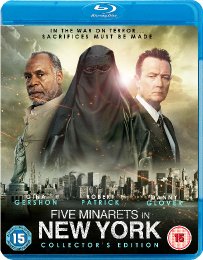






































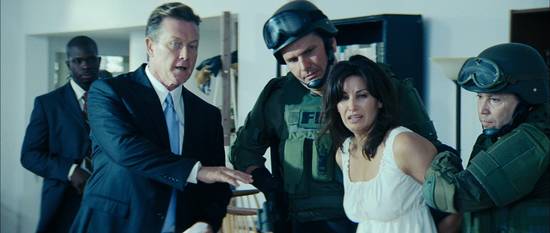
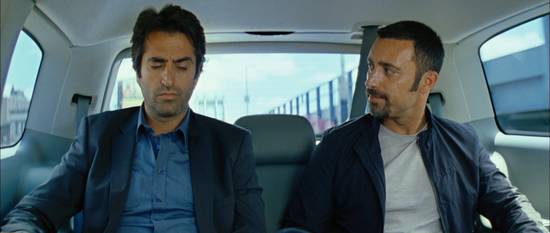
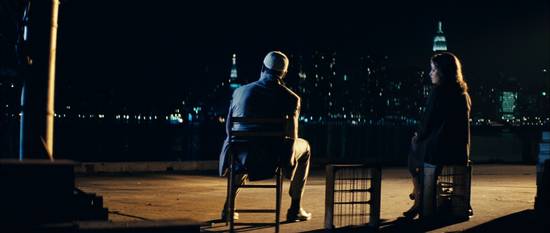
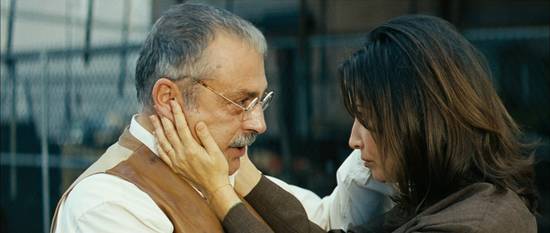
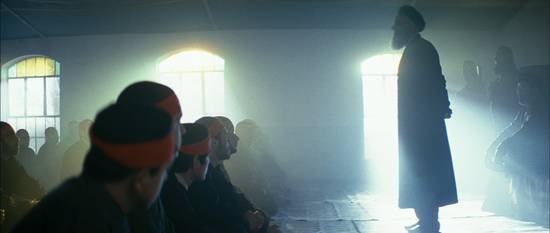
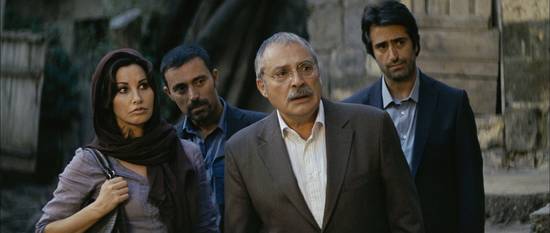
Your Opinions and Comments
Be the first to post a comment!